Daniel Libeskind designs Milan Expo pavilion for Chinese developer Vanke
Milan Expo 2015: New York-based architect Daniel Libeskind has proposed a twisted reptilian structure for the first ever expo pavilion for a stand-alone Chinese company (+ movie).
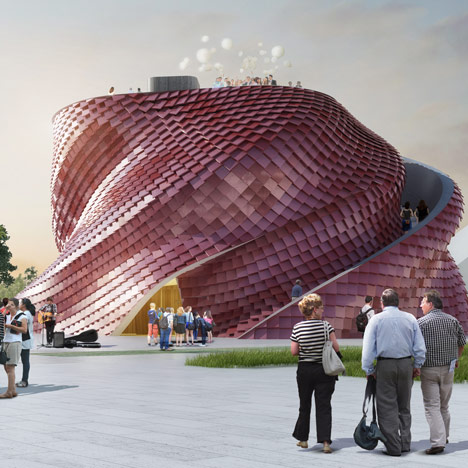
Designed for Vanke, China's largest property developer, the Shitang pavilion is already under construction at the Milan Expo 2015 site, and was conceived by Daniel Libeskind as a sinuous volume with a scaly outer skin.
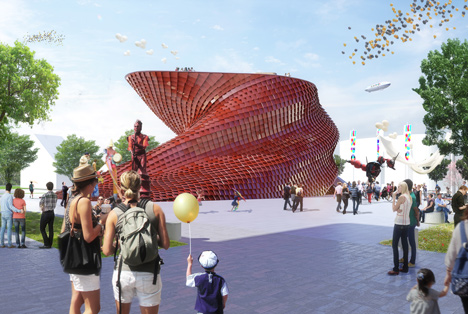
Ancient Chinese teachings and Renaissance art are cited as some of the inspirations for the building, whose twisted shape is intended to create a "continuous flow" between inside and outside spaces. A staircase will also curve around the exterior, leading up to a rooftop terrace.
Responding the Expo theme Feeding the Planet, Energy for Life, New York exhibition designer Ralph Appelbaum and Chinese graphic designer Han Jiaying will work with Libeskind to create an interior described by Vanke as a "virtual forest". This will feature 300 multimedia screens, offering a look at the role of the dinner table in Chinese communities.
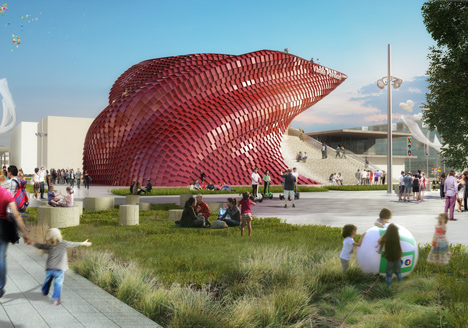
"In keeping with the theme of Expo Milano, Feeding the Planet, Energy for Life, we proposed the concept 'Shitang' for the Vanke Pavilion," said Vanke chairman Wang Shi.
"Shitang in Chinese means 'table'. We thus want to express our idea of urbanisation and community through the experience of food. Indeed, food is one of the most effective ways to understand a culture: the ritual of eating and talking together is important in every community because by eating together it is possible to get to know each other better," he said.
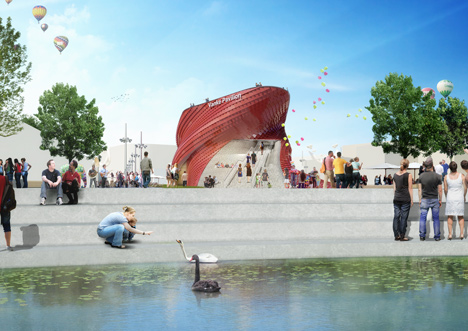
Libeskind has previously said that he would not work in China on ethical grounds and urged architects to "think twice" about building in the country. Later that same year it was revealed by UK architecture newspaper BD that his practice was working on a 25,000-square-metre public building in Hong Kong.
"This is not a dogmatic idea for Daniel," Nina Libeskind told BD in 2008. "Its a personal thing for him. We've seen what has happened in Tibet, but there is a rule of law in Hong Kong that Daniel is comfortable with."
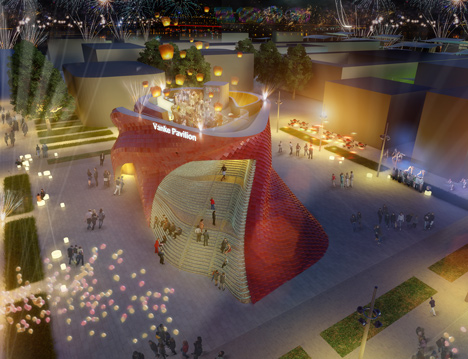
China unveiled the design for its national pavilion earlier this year. Designed by New York firm Studio Link-Arc and a team from Tsinghua University, it will feature an undulating roof and an indoor field.